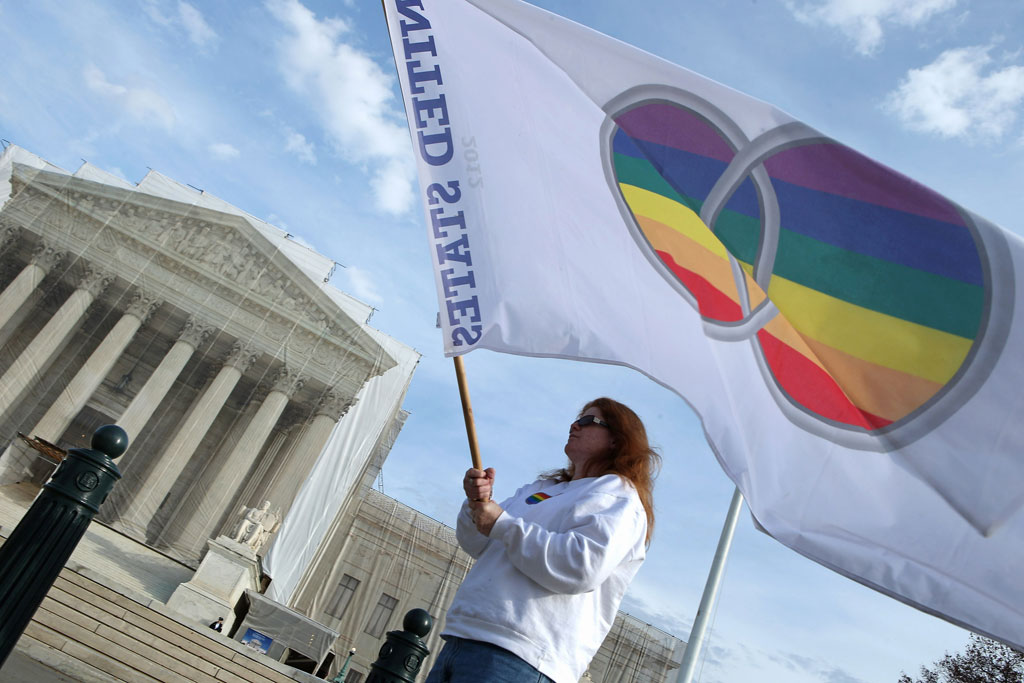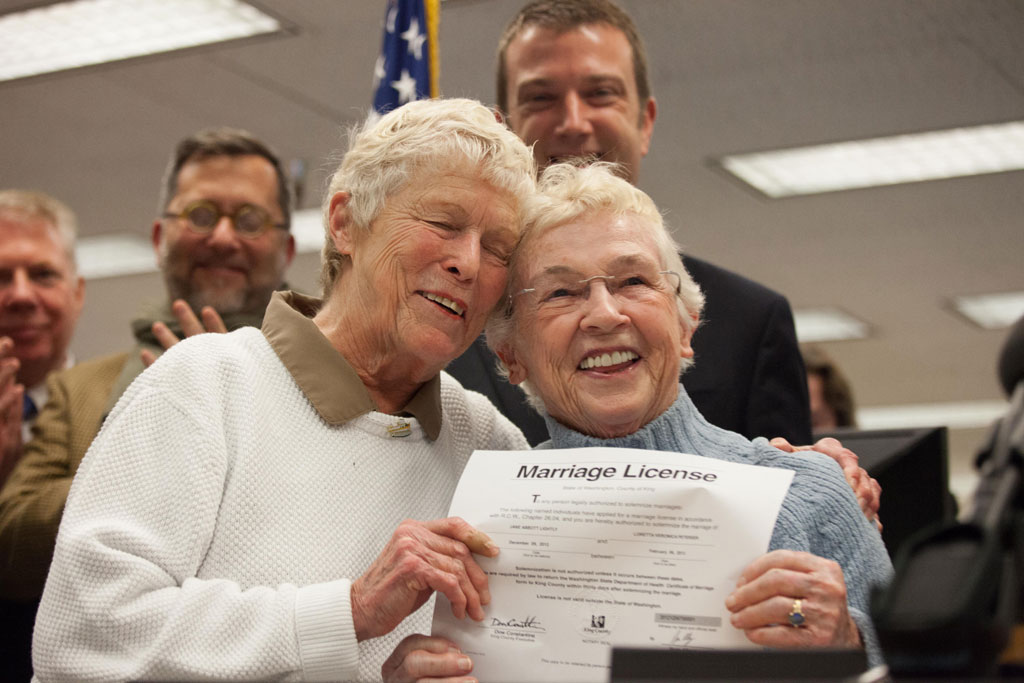Gay marriage: US Supreme Court takes on historic rights case
It is already being described as the biggest civil rights case for a generation. Felicity Spector writes on how the Supreme Court of the United States is wading into the gay marriage issue.

The Supreme Court of the United States announced late on Friday that it will take up two cases which hinge on the constitutionality of gay marriage – based around the 1996 Defence of Marriage Act (DOMA) and California’s Proposition 8, which took away the right to same-sex marriages within the state in 2008.
Section 3 of DOMA defines marriage as a union between a man and a woman. This provision was challenged by New Yorker Edith Windsor, who argued that she should receive the same benefits as a heterosexual couple, over estate taxes she had to pay when her wife died: she would not have been liable for the tax if she had been married to a man.
Two circuit courts, and the Barack Obama administration have all declared the Act to be unconstitutional by treating legally married gay couples differently: at the moment it has been left to Republicans in Congress to defend the existing law.
However, it is the challenge to California’s Prop 8 which is potentially more groundbreaking. The referendum which narrowly approved a ban on gay marriages, effectively took away a right which had been granted five months earlier. And it’s this which the 9th Circuit Court has declared unconstitutional.
The challenge, known as Hollingsworth v Perry, is being led by Washington lawyer Theodore Olson, who set out to make gay marriage a basic right, not just in California but in the rest of the country. Now, the Supreme Court has agreed to hear his case, which Mr Olson called “perhaps the most important remaining civil rights question of our time.”
Two circuit courts, and the Obama administration have all declared the Act to be unconstitutional by treating legally married gay couples differently
The Obama administration, when it put forward papers opposing the ban, said the challenge was “of exceptional practical importance to the United States, and to tens of thousands of individuals affected.”
At the moment, the 9th Circuit Court ruling only applies to California: they opted to strike down Proposition 8 because it took away a right that had previously been granted, calling the situation “unique”.
Explaining the decision, however, Judge Stephen Reinhardt said the measure “serves no purpose, and has no effect, other than to lessen the status and human dignity of gays and lesbians in California, and to reclassify their relationships and families as inferior to those of opposite-sex couples.”
Now the US Supreme Court is wading into the issue, its ruling could affect the entire country – including the 39 states which have all declared gay marriage illegal, and the remainder which have yet to decide.
The Supreme Court has a few options. It could decide to approve the narrow decision of the lower court, which would overturn Prop 8, and open the door to gay marriages in California. Huge for that state – home to 37 million people – but it would not establish a universal constitutional right across the rest of the country.
They could go further, and rule that equal treatment should apply to all married couples, whatever their sex: establishing a universal constitutional right.
Or they could reverse the 9th Circuit Court decision and allow the Californian ban to be re-established.

Supporters of that ban are worried. At the time, they declared the circuit court decision was “tantamount to a judicial death sentence for traditional marriage laws” in the state: and they insist that the peoples’ vote should be respected.
Supporters of traditional marriage are also keen for DOMA to be upheld. 15 states, led by Idaho, have argued that heterosexual families are essential for children to grow up in a long-term, stable environment. “Traditional marriage protects civil society by encouraging couples to remain together to rear the children they conceive”, they claimed.
It would take a majority, or five Supreme Court justices, to set a legal precedent, a potentially historic ruling on same sex marriage which would have profound consequences for civil rights in California, and possibly for the United States as a whole. Emily Bazelon, the Supreme Court specialist at Slate magazine, is already excited: “This is it: the civil rights issue of our generation, in the hands of nine justices.“
Legal watchers say the four liberal justices on the bench are likely to support gay marriage equality, while the four conservatives are expected to oppose it. That leaves one swing vote: Justice Anthony Kennedy, who has supported gay rights causes in the past, but has also said he does not want to pass judgement on the marriage issue.
‘This is it: the civil rights issue of our generation, in the hands of nine justices.’ – Emily Bazelon, supreme court specialist
While attention focuses on the small group of judges tasked with deciding this issue, it is clear that support for same-sex marriage has been growing across the US.
In November, it was approved by popular votes in Maryland, Maine and Washington state, making the practice legal in nine states as well as the District of Columbia. In poll, released this week by Quinnipiac University, 48 per cent of voters said they supported gay marriage, compared to just 36 per cent in 2008.
Oral arguments will be heard in March of next year, with a ruling expected by June. Tom Goldstein, of the influential Scotus blog, reveals just how important that ruling could be. “These are the most significant cases these nine Justices have ever considered, and probably that they will ever decide”.
Felicity Spector writes about US politics for Channel 4 News